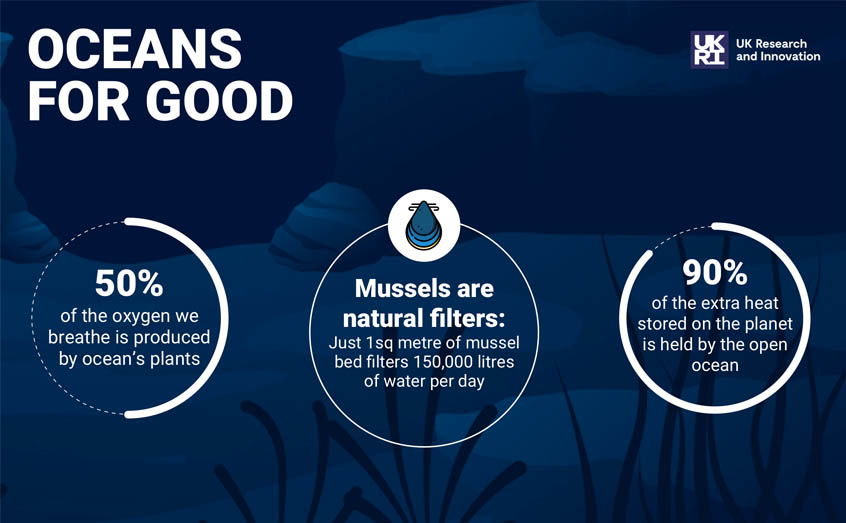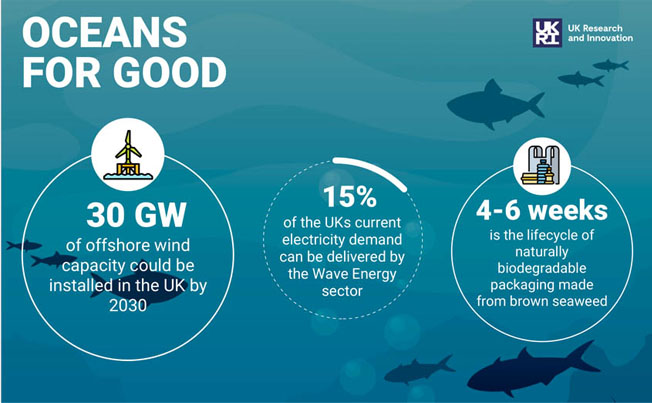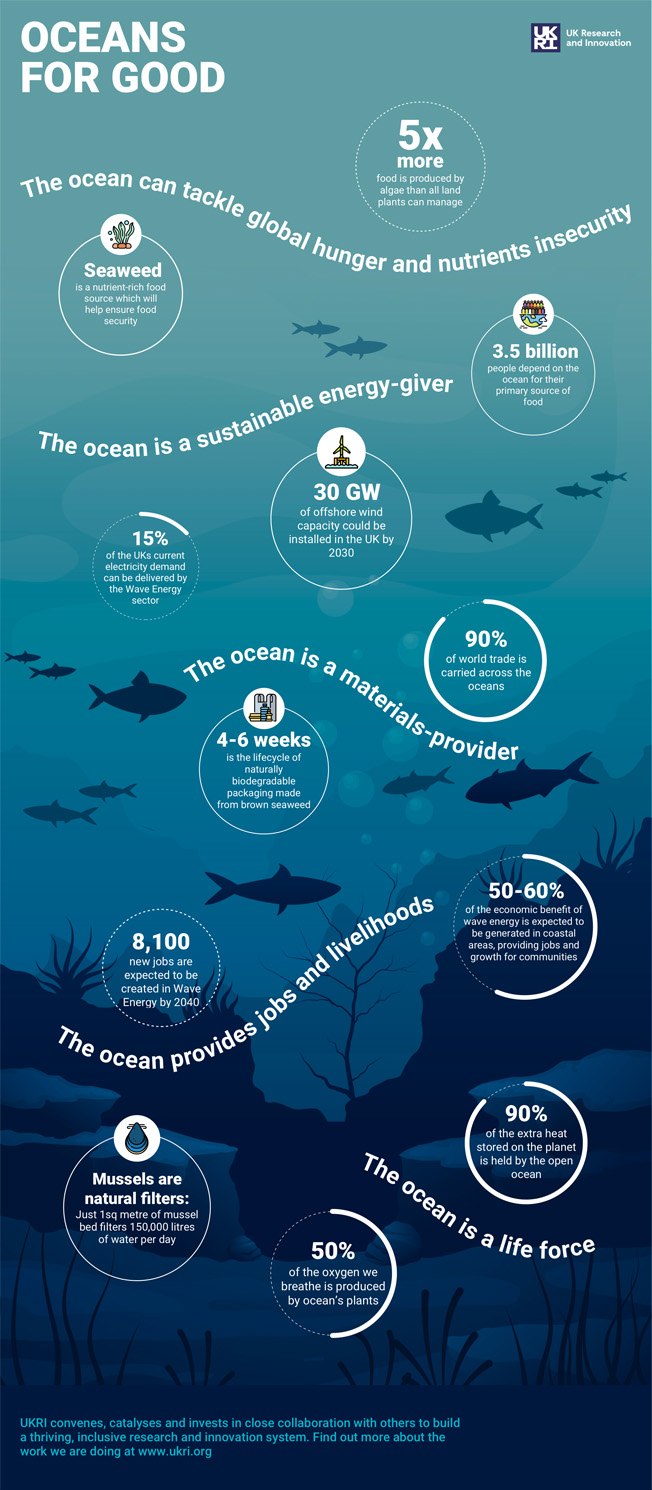SAMS news room
Oceans for Good

The oceans are an integral part of our planet’s ecosystem, providing countless benefits to humanity and society; whilst supporting marine life. Our high seas cover 71% of the Earth's surface, supplying more than half of the oxygen we breathe, absorbing high levels of carbon dioxide from the atmosphere, regulating our climate, and offering an alternative to fossil fuels to alleviate the energy crisis.
We are captivated by the beauty of the underwater world, but there's so much more to discover below the surface. UK Research and Innovation (UKRI) has produced an Oceans For Good infographic in time for post-COP26 conversations on climate targets illustrating some of the many benefits of our blue planet.
Our majestic seas are a force for good when it comes to combating the climate crisis. Some key statistics highlighted in the infographic include:
- 50% of the oxygen we breathe is produced by the ocean's plants
- 5 billion people depend on the ocean as their primary source of food
- 15% of the UK’s current electricity demand could be delivered by wave energy
- 50-60% of the economic benefit of wave energy is expected to be generated in coastal areas, providing jobs and growth for coastal communities
The infographic statistics derive from the Wave Energy Innovation Position Paper and the Plymouth Marine Laboratory.

Oceans have the Power to Alleviate the Energy Crisis
The world's energy crisis is predicted to be one of the most significant barriers to global progress in the next few decades. With fossil fuel reserves rapidly diminishing and environmental concerns mounting, it is more important than ever to focus on marine renewable energy sources.
Fortunately, the oceans have an inexhaustible supply for us to use as fuel. The tides and currents of our oceans can provide a steady supply of renewable energy in the form of hydroelectricity, and current technologies for harnessing this power are rapidly becoming cheaper and more efficient. Offshore wind and wave resources have the potential to generate 400 times as much electricity as all the world's nuclear power plants.
Changing Ocean Systems
The oceans are an essential part of the Earth system and affect everything from the climate to the shape of the continents. Ocean water circulates the planet through wind or density-driven ocean currents, storing and transporting heat and carbon, as well as dominating the global fresh-water cycle.
SAMS plays an international role in large-scale and regional ocean observing and the development of leading-edge numerical models with these observations, working to understand the ecology of marine organisms and how species interactions and natural and anthropogenic drivers affect the functionality of the wider ecosystem.
Ocean Energy and the Marine Environment
The marine environment is impacted by the presence of these power-generating technologies and can cause permanent habitat destruction. However, offshore wave and tidal power generators can be retreated during high tide periods to minimise the impact on marine life.
SAMS developed environmental monitoring plans (EMP) to understand whether new marine renewable installations were detrimental to the marine environment and whether redesign, mitigation or site adjustment is required to extract marine renewable energy to avoid damaging our coastal seas. We aimed to identify key environmental parameters and marine species likely to be vulnerable or indicate a change of subsequent site development.
Driving Sustainable Blue Growth
Our seas play a crucial role in social and economic development. Sustainable Blue Growth ensures the ocean’s resources are not over-exploited and offers a balance between economic advancement and environmental sustainability. There are three key principles for sustainable Blue Growth: conservation, protection, and restoration.
With increasing pressures on our blue planet, SAMS Dynamic Coasts offers biological, ecological, and sociological insights required to support the marine environment and drive sustainable Blue Growth whilst inspiring and encouraging future generations.
Dynamic Coasts research spans the domains of biological diversity of marine species to the consequences of climate change and social and economic studies of how human communities interact with the coastal seas.
The Scottish Association for Marine Science (SAMS) has been delivering independent marine science since 1884. Based in Oban, 160 staff are working for healthy and sustainably managed seas and oceans through world-class marine research, education and engagement with society. Discover our latest news stories here.

